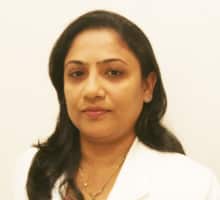Request Appointment
Enter your details and we will be in touch with you shortly;
Or call
8655885566
between 8 am and 8 pm.

Ankylosing spondylitis is an inflammatory arthritic condition affecting the joints spine and large joints

Constant pain and stiffness are generally the first symptoms of ankylosing spondylitis. The pain generally starts at the sacroiliac joint which is located in the pelvis. Some of the other ankylosing spondylitis symptoms include:
 Professional diagnosis required
Professional diagnosis required Chronic, can last for years
Chronic, can last for years Treatable with 12 weeks of QI Spine Therapy
Treatable with 12 weeks of QI Spine TherapyThe exact cause of ankylosing spondylitis in unknown however we do know that genetics plays a significant role. One of the main causes of ankylosing spondylitis is the presence of a gene called HLA-B27 as nearly 90% of the people who develop ankylosing spondylitis gave this gene. Not everyone who carries the gene will develop ankylosing spondylitis – only 1-2% of individuals with this gene will develop the condition. Scientists believe that there are additional unknown factors that are necessary in order for the disease to appear.
 Professional diagnosis required
Professional diagnosis required Chronic, can last for years
Chronic, can last for years Treatable with 4 weeks of QI Spine Therapy
Treatable with 4 weeks of QI Spine TherapyConvention treatment for ankylosing spondylitis depends almost solely on anti-inflammatory drugs, opioid painkillers, and corticosteroid injections. However, these medications have serious side effects; since there is no cure for ankylosing spondylitis, the long-term use of these medications increases the risk of other health complications. Similarly, conventional physiotherapy for ankylosing spondylitis may offer some benefits but again, this may be limited as most physiotherapists do not isolate the affected muscles but instead focus on muscle groups.
QI Spine Clinic uses the most advanced spine function test – the Digital Spine Analysis (DSA) to reveal weak areas in the spine and back. This helps our spine specialists identify key areas that require attention so that these muscles can be strengthened. This prevents stiffness, improves muscle function, and increases mobility.
Ankylosisng spondilitis causes a decrease in chest expansion; supervised medical movements will help to open up your chest and prevent ankylosisng spondilitis breathing problems. Treatment protocols are unique to each patient depending on how the condition has affected them – this allows spine specialists to provide the best ankylosing spondilitis treatment for each patient, depending on their individual requirements.
QI Spine Clinic also provides microcurrent therapy as a safe alternative to pain medication as it does not cause any side effects. This therapy uses very low-level electrical currents to reduce muscle and nerve pain and reduce inflammation. The benefits of microcurrent therapy accrue over time so several sessions will prove greater pain relief benefits. QI Spine also offers counseling and alternative therapies to help patients with ankylosing spondylitis understand the physical and psychological changes associated with this condition. It is important to consult a spine specialitst as soon as possible to slow down the progression of anklosing spondilits, reduce your pain, and manage your condition.
 Professional diagnosis required
Professional diagnosis required Chronic, can last for years
Chronic, can last for years Treatable with 4 weeks of QI Spine Therapy
Treatable with 4 weeks of QI Spine TherapyConvention treatment for ankylosing spondylitis depends almost solely on anti-inflammatory drugs, opioid painkillers, and corticosteroid injections. However, these medications have serious side effects; since there is no cure for ankylosing spondylitis, the long-term use of these medications increases the risk of other health complications. Similarly, conventional physiotherapy for ankylosing spondylitis may offer some benefits but again, this may be limited as most physiotherapists do not isolate the affected muscles but instead focus on muscle groups.
 Professional diagnosis required
Professional diagnosis required Chronic, can last for years
Chronic, can last for years Treatable with 4 weeks of QI Spine Therapy
Treatable with 4 weeks of QI Spine Therapy


Have a question?
Ask our spine specialists
Who is a QI Spine Specialist?
A QI Spine Specialist is a medical expert with

Dr. Nidhi Sanghvi Shah

Dr. Shital Gaikwad

Dr. Richa Bhatia
9000 hours
of specialisation in treating back and neck conditions
32 hours
of spine physiotherapy specialisation methods in McKenzie concepts, Kinetic control, Neurodynamic solutions, Mulligan’s concepts
500 hours
and 6 months of QI Spine specialisation courses